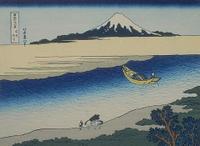Playing catch-up
I just brought home a great arm-load of stuff from the library, but I've vowed not to touch anything until I catch up on my entries here. I've been bad. I've been working on about 4 books at once and stopping a chapter short of the end because I have yet to post about one I finished weeks ago.
So:
The Long Emergency
James Howard Kunstler
Heard this guy on a local radio talk show (he lives in-state) and went out to get the book shortly after. It was a great apocalyptic rant -- I really enjoyed it.
I had a history prof in college that told us that we were all Marxist. When that sent the Reagan-worshiping young republicans into apoplectic fits, he explained that for Marx, the forces that moved history were all economic. (Eventually he had all the RWYR's agreeing that, yeah, they felt the same way -- I loved that little turnabout.) Well, for Kunstler, the forces that move history are all related to fossil fuels -- oil makes the world go 'round. And eventually that oil will run out, and what will we all do then?
I like the geopolitical summary of world events (through oil-colored glasses) that he presents. Then, a section where he systematically takes down any potential alternative energy sources made me wish I knew a little more about the science and, yes, economics behind the subject because bits of his argument felt a little shaky. Then, when he envisions what doom will befall our culture of waste, who wouldn't enjoy it? OK, probably plenty of people don't enjoy that sort of thing, but I did. It made me wish I had saved my babysitting money and gotten the lifetime subscription to Mother Earth News when they were still offering it. His imagining of society post-oil was kind of silly -- it veers between a "Mad Max" landscape and one populated by Jeffersonian gentlemen farmers. But still, overall a good read.
and also:
Assassination Vacation
Sarah Vowell
Picked this one up 'cause it was new at the library and it struck my fancy.
Sarah Vowell is such a history wonk! I had no idea just how deep this went. She has three sections in the book; a separate one for each of the assassinations of Lincoln, Garfield, and McKinley. She drags friends and relations with her all over the country to visit sites associated with the presidents, their murderers, cabinet members, descendants, and anyone else remotely connected.
But really, if you know enough, everything is connected. It was dizzying, how she jumped around in time and across the miles, zapping little lightning bolts of connection between people, places, and events. I was beginning to think that she knew everything (especially when she provided details about the women who posed for the illustration on a souvenir coaster for the 1901 Pan-American Exposition, where McKinley was shot -- a coaster for God's sake!). But the book remains engaging and un-stuffy throughout. Bonus points for the side trip to Philadelphia's Mütter Museum. Right now I have two books in my house that mention the Mütter (the other is Annie Dillard's). I'll have to go there some day...


0 Comments:
Post a Comment
<< Home